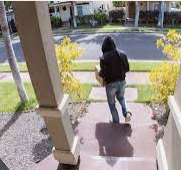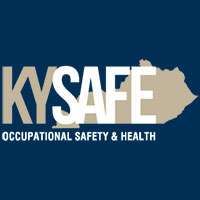By Jack Brammer
NKyTribune reporter
Starting Thursday in Kentucky, male-to-female transgender students starting in the sixth grade and continuing through college will not be allowed to participate in girls’ sports.
Persons convicted of trafficking fentanyl will have to serve at least 85 percent of their criminal sentences, up from their current 50 percent.
And state funding for charter schools will kick in, with authorization of two pilot charter school projects in Northern Kentucky and Louisville.

Most of the 234 bills Kentucky lawmakers approved in this year’s General Assembly take effect Thursday, 90 days after the session ended, said Mike Wynn, a spokesman for the Kentucky Legislative Research Commission.
The Kentucky Constitution specifies that new laws take effect 90 days after the adjournment of the legislature unless they have special effective dates, are general appropriation measures, or include emergency clauses that make them effective immediately upon becoming law.
This year’s legislative session ended April 14, making the date for most new laws to take effect July 14.
Here are some of the major laws that take effect Thursday:
• Transgender athletes: State lawmakers in the Republican-controlled House and Senate overrode Gov. Andy Beshear’s veto of Senate Bill, the transgender ban bill.
It affects trans-girls in grades six through 12 and college.

Senate Bill 83 will prevent male-to-female transgender students from participating in girls’ sports, starting in the sixth grade and continuing through college.
The bill may trigger a lawsuit and federal courts have ruled overwhelmingly in favor of transgender rights. Questions have arisen whether the law runs afoul of NCAA rules, threatening Kentucky’s participation in NCAA sports.
• Fentanyl: House Bill 215 becomes law as drug overdose deaths climb in Kentucky, largely due to fentanyl.
Known as Dalton’s Law, it requires those convicted of trafficking fentanyl, carfentanil or fentanyl derivatives to serve at least 85 percent instead of 50 percent of their criminal sentences.
It also makes importing those drugs from another state or country a Class C felony, subject to five to 10 years in prison, and deems offenders ineligible for a pretrial diversion.
• Charter schools: House Bill 9 introduces charter schools in Kentucky and supplies them with state funding. A charter school receives government funding but operates independently of the established state school system in which it is located.

The new law builds on legislation from 2017 that allowed charter schools in Kentucky. It authorizes two pilot charter school projects in west Louisville and Northern Kentucky and changes the appeals process if education officials deny an application for a new charter school.
Beshear vetoed the bill, claiming it would take dollars away from public education, but legislators overrode the veto.
Supporters of the bill claimed it would give parents more choices for their children’s education.
Child abuse: House Bill 263, known as Kami’s Law, makes criminal abuse against a victim less than 12 years of age a Class B felony, subject to 10 to 20 years in prison.
Child fatalities: Under Senate Bill 97, law enforcement is required to request blood, breath, or urine test from parents and caregivers suspected of being under the influence at the time of a suspicious child death.
If consent is not given, this bill gives law enforcement the power to request a search warrant.
• Crimes during emergencies: Senate Bill 179 enhances penalties for crimes committed during a natural or man-made disaster declaration. Crimes include assault, burglary, criminal trespass, criminal mischief, theft, receiving stolen property and robbery.

• Criminal justice reform: Senate Bill 90 calls for pilot programs in at least 10 Kentucky counties selected by the Kentucky Supreme Court chief justice for low-level drug offenders to participate in a behavioral health conditional dismissal program based on their participation in treatment and vocational services.
• Death penalty: House Bill 269 adds serious mental illness to the list of disabilities that disqualify offenders from execution – if symptoms were occurring at the time of the offense.
• Due process: House Bill 290 calls on state colleges and universities to adopt a student code of conduct for non-academic disciplinary procedures and provide students with due process protections that are similar to those in criminal and civil courts.
• Education: Senate Bill 1 designates local superintendents as the lead official for selecting the appropriate educational curriculum and materials for local schools. It also includes language from the Teaching American Principles Act, which will require instruction in social studies to align with a list of core concepts and documents that supporters say are central to American civics.
• First responders: Senate Bill 64 aims to protect the confidentiality of first responders who participate in peer support counseling programs. Supporters say it will benefit thousands of public safety workers who frequently experience trauma on the job but could face repercussions from frank discussions in counseling.

• Imagination Library: Senate Bill 164 establishes the Imagination Library of Kentucky Program.
Founded by country music legend Dolly Parton, this international literacy program provides free books monthly to children from birth to age 5. The state will provide 50 percent of the funds.
• Incest: Senate Bill 38 classifies incest as a violent offense. It ensures that individuals guilty of incest complete at least 80 percent of their prison sentence.
• Pari-mutuel wagering: House Bill 607 taxes every pari-mutuel wager at a standard 1.5 percent rate, including advance-deposit wagers and bets on simulcasts.
It also directs more money to the state’s General Fund that pays for most programs; makes the Kentucky Racing Commission responsible for self-funding; creates a self-exclusion list for problem gamblers and eliminates the track admissions tax.
• Peace officer certifications: House Bill 206 prohibits anyone convicted of a misdemeanor sexual offense from serving as a peace officer.

• Porch pirates: Senate Bill 23 cracks down on people who steal packages off front porches, often referred to as porch pirates.
The bill makes it a Class D felony, subject to one to five years in prison, to steal or destroy packages from common carriers and delivery services such as Amazon or FedEx.
• Public assistance: House Bill 7 revamps public assistance benefits and seeks to combat fraud with new rules around benefit eligibility. It also seeks to increase accountability from the state Cabinet for Health and Family Services and encourage healthy choices for those receiving nutritional assistance.
• Religious services: House Bill 43, dubbed the “Church is Essential Act,” prohibits a governmental entity from prohibiting worship services during a state of emergency.
• School board meetings: House Bill 121 requires a public comment period of at least 15 minutes at local school board meetings, if no one is signed up to speak. It also requires that any board rules and policies regarding conduct apply during the comment period.
• School breakfasts: Senate Bill 151 calls on schools in the Federal School Breakfast Program to offer students up to 15 minutes to eat breakfast during instructional time.

• School resource officers: House Bill 63 calls on local school districts to place a school resource officer in each school by Aug. 1 if they can afford the cost. It also allows local school boards to establish a police department for the district.
• Serving alcohol: House Bill 252 clears the way for 18-year- olds to sell and serve alcoholic beverages.
• Student mental health: House Bill 44 allows school boards to include provisions in their student attendance policy for excused absences due to a student’s mental or behavioral health status.
• Swatting: House Bill 48 makes falsely reporting an incident that results in an emergency response – commonly called “swatting” – a Class D felony.
• Telecommunicates: House Bill 79 expands the Law Enforcement Professional Development Wellness Program to assist telecommunicators who are coping with post-traumatic stress disorder or work-induced stress. It will also increase training and resources for telecommunicators related to stress disorders.
• Anti-SLAPP bill: House Bill 222 prevents people from using courts and potential threats of a lawsuit to intimidate people who are exercising their First Amendment rights, including the right of access to information through public records laws. SLAPP (Strategic Lawsuit Against Public Participation) lawsuits are filed against those who speak out against a matter of public interest protection.
More information about these bills and the Kentucky General Assembly can be found at www.legislature.ky.gov/Pages/index.aspx
Citizens may also share their views by calling the General Assembly’s toll-free message line at 1-800-372-7181.

















